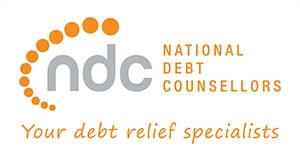Debt review and debt restructuring are often used interchangeably, but they refer to two different debt management processes.
A consumer is over-indebted when they cannot repay their debts in time. If their total debt is more than their net income after paying for living expenses, they are also over-debted. Unfortunately, many people don’t know the advantages and drawbacks of debt review or consolidation.
Debt Review vs Debt Restructuring – the Differences Explained
Debt review involves a registered debt counsellor as per the National Credit Act 34 of 2005. They determine your outstanding debt and devise a restructured debt repayment plan. Debt review is a formal legal process. The debt counsellor negotiates with your credit providers to reduce interest rates and debt repayments. Debt review protects the rights of the consumer. It also ensures that the creditor receives their payment. In short, debt review vs debt restructuring have different implications and outcomes.
When a person enters a debt review, their debt counsellor will assess their financial situation. The counsellor will then create a debt repayment plan suited to their specific needs. The debt counsellor will then negotiate with the creditors to reduce interest rates, extend the payment terms, and waive any extra fees or charges. The person will only have to make one monthly payment to the debt counsellor. They will then distribute the funds to the creditors. Once a person has entered debt review, their creditors are no longer allowed to take legal action against them. The person is protected from repossession, legal action, and garnishee orders.
A Legal Process vs a Negotiation
Debt restructuring is a process used by businesses to manage their debts. It involves renegotiating the terms of the debt with the creditor to make the payments more manageable. Debt restructuring includes many different strategies, such as refinancing, debt consolidation, and debt for equity swaps.
Companies use debt restructuring when it has short-term cash flow issues. Creditors will also get a better outcome than they would by forcing the business into liquidation.
Debt restructuring is not a legal process. This means there are no legal protections for the business. The creditor may still take legal action if the debt is not repaid.
Voluntary Debt Restructuring vs Debt Review for Individuals
For individual consumers, there is voluntary debt restructuring. This is an excellent choice for consolidating some of your debt and easing your financial burden. It gives flexibility because you can stop the process at any point. It is a valuable financial tool that you can use as needed. Still, it is not a legal process like debt review is and does not offer the protections that debt review does.
A debt review is ideal if you are already over-indebted and need debt relief while safeguarding your assets from repossession. The formal process results in a court order with new payment agreements and ensures asset protection.
Want to Learn More About Debt Review vs Debt Restructuring? Speak to the Experts
National Debt Counsellors help South African citizens to have financial freedom and enjoy a debt-free life. We understand debt review vs debt restructuring and can advise you accordingly.
Our secure partnerships with all the major credit providers allow us to assist you in reducing your instalments to an amount you can afford. We will do a free, no-obligation assessment of your financial situation. Then, we will advise you on whether debt review vs debt restructuring is the best option for your unique situation.
On cost alone, debt review is one of the most affordable debt relief options available making it the ideal, go-to solution. Talk to us to find out more.
